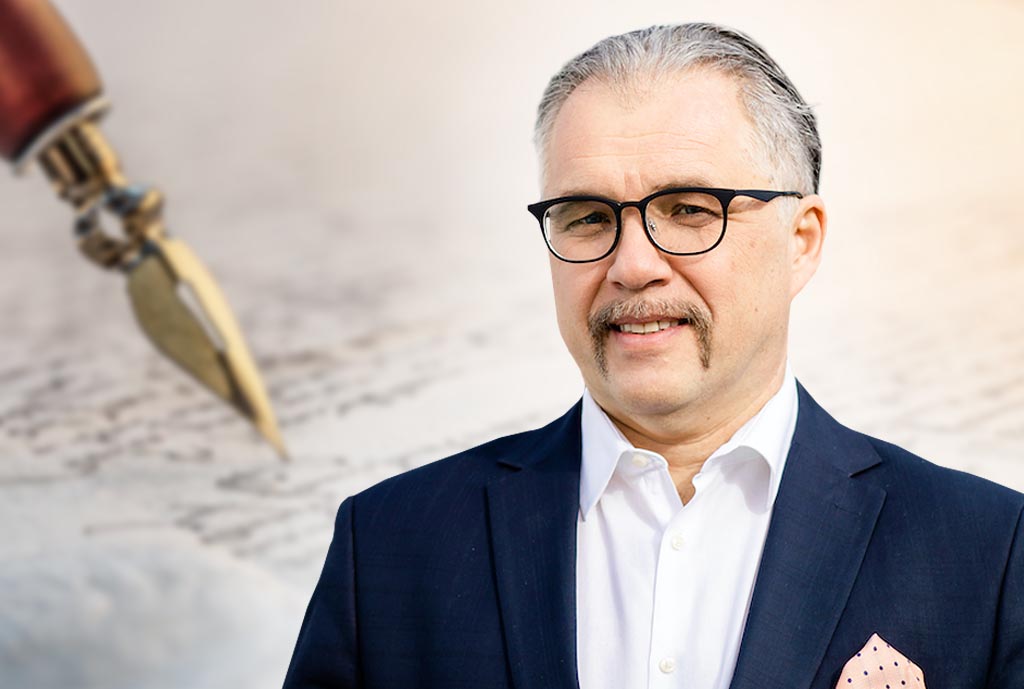By: Edvard Kadič
The year 2023 is behind us. We will remember it mainly for the catastrophic floods, the not-so-great government response, and as another year of unfulfilled promises from Prime Minister Robert Golob. The year started boldly with a promise of a €600 supplement to judges. Then, in April, Golob solemnly promised the Slovenian public that he would no longer make promises, only to end the year with a promise to businesspeople to eliminate the controversial “stamp duty”. Of course, this promise, too, turned out to be empty.
What will the year 2024 bring to the political scene? The first half of the year is expected to be uneventful for Slovenia, as the focus will be on the European Parliament elections. Given the general climate, a shift to the right is expected in the European political landscape. People are tired of the deliberate destruction of European culture and our traditional way of life, especially the active role Europe has played on the world geopolitical map in recent decades. Left-wing politics has proven to be destructive from within and incapable of addressing key external challenges. Why do we have legislation on borders and immigration, for example, when a fleet of arrivals from Morocco can land on European shores without consequences, demanding refugee status, while Europeans go on vacation to Morocco?
In Slovenia, too, we can expect more European Parliament seats for right-leaning candidates. Apart from the announced candidacy of Peter Gregorčič, we can only speculate about other candidates for a new term in the European Parliament at this moment. However, there are several excellent and experienced individuals within the bureaucratic machinery. This is where being vocal at home does not necessarily mean much. Potential candidates include Romana Tomc and Milan Zver.
The time revolving around the European elections will also be a good time for distributing more money to government-related NGOs and providing even better cover for “our” staffing. One of the characteristics of Golob’s government, in addition to unfulfilled promises and money distribution to our affiliates, is a very shallow pool of personnel. Similar to how a journalist and editor are not automatically suitable for the CEO of RTV just because they are “ours” (as in the case of Zvezdan Martič), the same applies to ministers. Can you imagine a well-functioning democracy where a new minister is sued for nearly 150 ministerial salaries by a former employer for several years, and he magically settles with this company practically on the day of his ministerial confirmation? It is difficult, is it not? But that is the case with Minister Props. If this does not interest journalists, it goes unnoticed by the public, and the scheme can continue. Usually, because old practices are not sanctioned, the scope of new ones only increases.
Will there be preliminary elections in the fall of 2024? Maybe. I am more inclined to the thesis that preliminary elections will only happen next year, in the spring of 2025. From the perspective of strategic political marketing, it is already a bit late to work on a “new” face for the autumn elections. One year is just right.
A good question is what the year 2024 will bring regarding Anže Logar, Vladimir Prebilič, and Pavel Rupar. Perhaps the current President of the State Council, Marko Lotrič, will successfully move to the forefront of political attention? Of the mentioned names, Pavel Rupar is currently the most active. From rallies, press conferences, establishing local committees to the announced founding of a pensioners’ party in January. Similarly, some impactful moves from Anže Logar and his Cooperation Platform are expected. The questions they are raising there naturally demand an upgrade, increased pressure, and thereby more media presence in the political space.
The second half of the year will certainly be heated. If the government does not fall, and there are no preliminary elections, it will be hot because politics will be preparing for preliminary elections in the spring of the following year. It is time to stop this developmental stagnation, rising prices, and high inflation. Two years of Golob’s “learning from his own mistakes”, mainly trampling through institutions and blocking democratic processes, are yielding results, and Slovenia is rapidly declining on international success indicators. Changes are necessary. Hold on to your wallets and hope that everything goes through as quickly and painlessly as possible.

